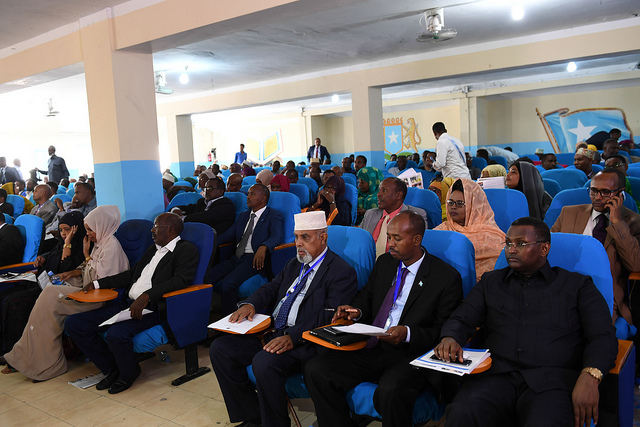House to demand more answers over Qalbi Dhagah case as it resumes business today


The question of embattled senior ONLF leader who was extradited to Ethiopia last week and subsequently branded a terrorist by the government will feature today in parliament as lawmakers resume seating following the Eid break.
MPs have been discussing the issue on the media for the last one week with a number of them promising to revisit the issue once the House is in session in what is likely to see the House demand more answers from the government.
Following an extra ordinary meeting last Tuesday after a week of public outrage, the cabinet issued a statement declaring Qalbi Dhagah a threat to the country’s security in the same ranks as Al-Shabaab as it built its case to show cause why it handed him over to Ethiopia.
Former state minister in the office of the president and current lawmaker Mahad Salad dismissed the government’s argument noting the documents relied upon by the cabinet to reach its decision were signed between regions of Somalia and Ethiopia and did not amount to a bilateral agreement between the two countries.
Similarly, former Galmudug president Abdikarin Guled who also signed a similar agreement as Salad said he was shocked to learn the government could build its case on such documents.
“I want to make it clear that there is no agreement that I made with Ethiopia while representing this government. We spoke with the government of the Somali region in Ethiopia about some issues. We don’t know ONLF as a terrorist organisation but we know them as people fighting for their rights,” said Guled.
An international legal expert who did not want to be named for security reasons told Goobjoog News the government erred in seeking refuge in the two documents observing they could not stand ground as instruments of international law.
“It follows therefore that the documents may not be interpreted as constituting a legally binding agreement by two countries recognised by international law, the expert said.